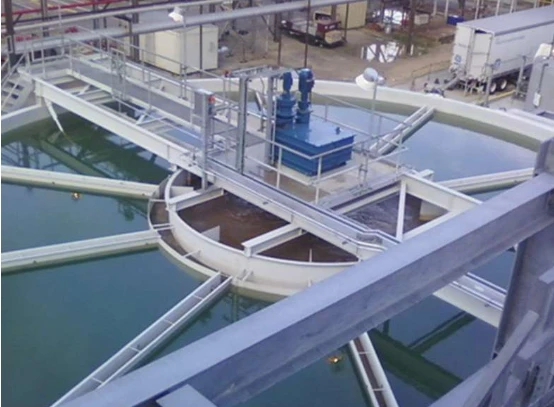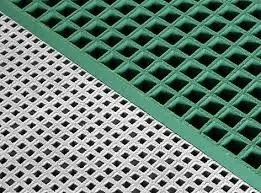
-
 Afrikaans
Afrikaans -
 Albanian
Albanian -
 Amharic
Amharic -
 Arabic
Arabic -
 Armenian
Armenian -
 Azerbaijani
Azerbaijani -
 Basque
Basque -
 Belarusian
Belarusian -
 Bengali
Bengali -
 Bosnian
Bosnian -
 Bulgarian
Bulgarian -
 Catalan
Catalan -
 Cebuano
Cebuano -
 China
China -
 China (Taiwan)
China (Taiwan) -
 Corsican
Corsican -
 Croatian
Croatian -
 Czech
Czech -
 Danish
Danish -
 Dutch
Dutch -
 English
English -
 Esperanto
Esperanto -
 Estonian
Estonian -
 Finnish
Finnish -
 French
French -
 Frisian
Frisian -
 Galician
Galician -
 Georgian
Georgian -
 German
German -
 Greek
Greek -
 Gujarati
Gujarati -
 Haitian Creole
Haitian Creole -
 hausa
hausa -
 hawaiian
hawaiian -
 Hebrew
Hebrew -
 Hindi
Hindi -
 Miao
Miao -
 Hungarian
Hungarian -
 Icelandic
Icelandic -
 igbo
igbo -
 Indonesian
Indonesian -
 irish
irish -
 Italian
Italian -
 Japanese
Japanese -
 Javanese
Javanese -
 Kannada
Kannada -
 kazakh
kazakh -
 Khmer
Khmer -
 Rwandese
Rwandese -
 Korean
Korean -
 Kurdish
Kurdish -
 Kyrgyz
Kyrgyz -
 Lao
Lao -
 Latin
Latin -
 Latvian
Latvian -
 Lithuanian
Lithuanian -
 Luxembourgish
Luxembourgish -
 Macedonian
Macedonian -
 Malgashi
Malgashi -
 Malay
Malay -
 Malayalam
Malayalam -
 Maltese
Maltese -
 Maori
Maori -
 Marathi
Marathi -
 Mongolian
Mongolian -
 Myanmar
Myanmar -
 Nepali
Nepali -
 Norwegian
Norwegian -
 Norwegian
Norwegian -
 Occitan
Occitan -
 Pashto
Pashto -
 Persian
Persian -
 Polish
Polish -
 Portuguese
Portuguese -
 Punjabi
Punjabi -
 Romanian
Romanian -
 Russian
Russian -
 Samoan
Samoan -
 Scottish Gaelic
Scottish Gaelic -
 Serbian
Serbian -
 Sesotho
Sesotho -
 Shona
Shona -
 Sindhi
Sindhi -
 Sinhala
Sinhala -
 Slovak
Slovak -
 Slovenian
Slovenian -
 Somali
Somali -
 Spanish
Spanish -
 Sundanese
Sundanese -
 Swahili
Swahili -
 Swedish
Swedish -
 Tagalog
Tagalog -
 Tajik
Tajik -
 Tamil
Tamil -
 Tatar
Tatar -
 Telugu
Telugu -
 Thai
Thai -
 Turkish
Turkish -
 Turkmen
Turkmen -
 Ukrainian
Ukrainian -
 Urdu
Urdu -
 Uighur
Uighur -
 Uzbek
Uzbek -
 Vietnamese
Vietnamese -
 Welsh
Welsh -
 Bantu
Bantu -
 Yiddish
Yiddish -
 Yoruba
Yoruba -
 Zulu
Zulu
Jan . 09, 2025 12:37
Back to list
frp pipe
FRP pipes, or Fiberglass Reinforced Plastics pipes, have been revolutionizing various industries with their superior performance and adaptability. These composite materials are manufactured by combining a polymer matrix with fiberglass reinforcement, resulting in pipes that offer numerous benefits over traditional materials like steel, iron, or concrete.
Safety is another critical concern in many industrial applications, and FRP pipes excel in this area due to their low thermal conductivity. These pipes don’t conduct electricity and are non-magnetic, making them ideal for use in environments where these properties are crucial, such as in electrical installations and MRI facilities. The environmental impact of materials is an increasingly important consideration in today's world, and FRP pipes contribute positively in this respect. Their longevity and lower maintenance requirements means reduced resource consumption over their lifecycle, aligning with sustainable practices. Additionally, the manufacturing process of FRP pipes typically consumes less energy compared to metals or concrete, further enhancing their eco-friendly profile. Finally, trust is a cornerstone of any successful product application. Engineers, architects, and industry insiders frequently recommend FRP pipes due to their proven track record across numerous installations worldwide. Extensive research and development have solidified their reputation as a reliable choice, and case studies consistently demonstrate their efficacy and efficiency in diverse applications, from municipal projects to industrial giants. In conclusion, FRP pipes embody a combination of strength, adaptability, and sustainability, making them an excellent choice for modern engineering challenges. Leveraging personal experience and industry research, it is clear that investing in FRP pipes equates to investing in long-term system integrity and operational excellence.


Safety is another critical concern in many industrial applications, and FRP pipes excel in this area due to their low thermal conductivity. These pipes don’t conduct electricity and are non-magnetic, making them ideal for use in environments where these properties are crucial, such as in electrical installations and MRI facilities. The environmental impact of materials is an increasingly important consideration in today's world, and FRP pipes contribute positively in this respect. Their longevity and lower maintenance requirements means reduced resource consumption over their lifecycle, aligning with sustainable practices. Additionally, the manufacturing process of FRP pipes typically consumes less energy compared to metals or concrete, further enhancing their eco-friendly profile. Finally, trust is a cornerstone of any successful product application. Engineers, architects, and industry insiders frequently recommend FRP pipes due to their proven track record across numerous installations worldwide. Extensive research and development have solidified their reputation as a reliable choice, and case studies consistently demonstrate their efficacy and efficiency in diverse applications, from municipal projects to industrial giants. In conclusion, FRP pipes embody a combination of strength, adaptability, and sustainability, making them an excellent choice for modern engineering challenges. Leveraging personal experience and industry research, it is clear that investing in FRP pipes equates to investing in long-term system integrity and operational excellence.
Next:
Related Products









